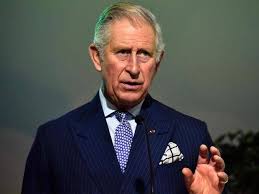Commonwealth leaders Friday acceded to the request of allowing Prince Charles to succeed his mother Queen Elizabeth II as the next head of the group, the BBC and other media reported.
Queen Elizabeth on Thursday told leaders from the 53 member states that she wanted her eldest son to succeed her in the symbolic figure-head role.
Leaders, gathered at Windsor Castle for private talks, agreed that Charles, heir to the thrones of 16 Commonwealth nations, should follow the monarch in the non-hereditary position, the BBC, Sky News television and the domestic Press Association news agency reported.
Following Queen Elizabeth’s public call as she opened the group’s summit on Thursday for potentially the final time, a series of Commonwealth premiers voiced their support Thursday for Charles as a figure of stability and continuity.
Queen Elizabeth, who turns 92 on Saturday, spoke of her own “extraordinary journey” since, pledging to serve the Commonwealth for life when aged 21.
“It is my sincere wish that the Commonwealth will continue to offer stability and continuity for future generations and will decide that one day, the Prince of Wales should carry on the important work,” she said, referring to Charles.
Queen Elizabeth has been the Commonwealth’s symbolic figurehead since her father King George VI’s death in 1952.
Some Republican voices had been angling for change in future.
British opposition leader, Jeremy Corbyn, head of the Labour Party, said on Sunday that the role could go to a rotating presidency.
But British Prime Minister, Theresa May gave her backing to 69-year-old Charles.
“The government supports the Prince of Wales as the next head of the Commonwealth. He has been a proud supporter of the Commonwealth for more than four decades,” her spokesman said.
Canadian PM Justin Trudeau said: “I very much agree with the wishes of Her Majesty that the Prince of Wales be the next head of the Commonwealth.”
Maltese PM Joseph Muscat added: “We are certain that when he will be called upon to do so, he will provide a solid and passionate leadership for our Commonwealth.”
Born on November 14, 1948 as the oldest son of Queen Elizabeth 11 and Prince Philip, Prince Charles is the longstanding heir apparent to the British throne. He graduated from Trinity College before embarking on a military career which culminated with him commanding the HMS Bronington. He married Diana Spencer in the summer of 1981 to huge media fanfare, though the couple would eventually divorce in 1996 after years of gossip and scandal. Charles later wed longtime love Camilla Parker Bowles after Princess Diana’s death. He is the father of Princes William and Harry and is also a grandfather. Among his many philanthropic and environmental endeavors are the Prince’s Trust and the Prince’s Rainforest Project.
In 1956, Charles attended the Hill House School in London before heading off to boarding school at the Cheam School the following year. He was made the Prince of Wales and Earl of Chester at the age of nine. Beginning in 1962, Charles changed schools again to go to Gordonstoun in Scotland. Later in the decade he also studied in Melbourne, Australia as an exchange student.
From 1967 to 1970, Charles then studied archaeology, anthropology and history at Trinity College, part of the University of Cambridge. In addition, Charles embarked on a career in the military as heir apparent to the throne.
After six months of aviation training with the Royal Air Force, Charles joined the Royal Navy in 1971, going on to serve on the HMS Norfolk and receiving a promotion in 1973 to acting lieutenant.
During the mid-’70s, Charles joined the Royal Naval Air Station to receive helicopter training, and later served as a helicopter pilot for the 845 Naval Air Squadron, based on the HMS Hermes. His time with the Hermes included a tour of Caribbean and Canadian waters before he took up additional course work at the Royal Naval College in Greenwich. In 1976, Charles ended his military service as commander of the HMS Bronington, the same year that he established the Prince’s Trust, a charitable organization dedicated to helping improve the lives of disadvantaged youth.
Towards the close of the decade, Charles further expanded his military skill set with parachute training, having already taken the reigns at times as the pilot for the Queen’s Flight, the monarchy’s official aircraft. The prince was eventually promoted to Group Captain for the Royal Air Force in 1995, and in the new millennium was again promoted to the rank of Air Chief Marshal.

